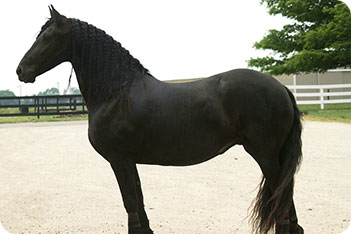
Girl Trampled To Death
From: May News 2011
See also: Equestrian and Horse News • Horse Behaviour • Horse Behaviour Characteristics

Girl Trampled To Death
A teenage girl called Elizabeth Colton has tragically died after an incident while tending to her own horse in a field close to their home in Garsdale, Cumbria.
It is believed that she lost control of the horse which she was attending to and fell to the ground at which point the horse is thought to have stood on her chest causing serious life threatening injuries.
Depite being airlifted to the Royal Lancaster Infirmary, Elizabeth later died from her injuries.
03.05.2011
Horse Behaviour
Horse are by their very nature unpredictable and no matter how well you know them they can still behave out of character from time to time. Being able to quickly recognise a change in your horses body language and behaviour can in some cases help prepare you for whats about to happen.
Horses are prey animals and have spent centuries running away from predators and developing quick responses to anything that feel could be a threat to them. Responses can include spinning, shying, spooking and leaping away.
Horse Behaviour Signs - the excited, curious and unsettled horse:
- Ears - If the horses ears are pricked and mobile, they can often hear something of interest going on, or hear a noise that they dont know, that in their mind could be danger.
- Eyes - When the horses eyes are wide and very alert they are again being super attentive and taking in their surroundings, if the horse starts to fidget as well then they are preparing to flee from danger or get back to their herd or companions for safety in numbers.
- Nostrils - When the horse makes a snorting noise it means that they are either unsure of something or frightened of an object, sound or smell.
- Head and Neck Carriage - When the horses head carriage is high and in many cases arched the horse is being particularily aware of what is going on around it and this is often accompanied with ears pricked and a highly alert and focussed expression.
- Tail - When excited horses will often raise their tails up in the air similar to that often seen with Arab horses, this is another sign that they are excited.
- Forelegs - Stamping and pawing the ground is a sign of impatience and eagerness.
- Fidgeting - When the horse is fidgetting and is often accompanied with most if not all of the signs above then be prepared because there could well be something about to happen.
- Other horses - Horses are by nature herd animals and will often react very sensitively to what there field companions are doing, because in a sense they feel they should be doing it too.